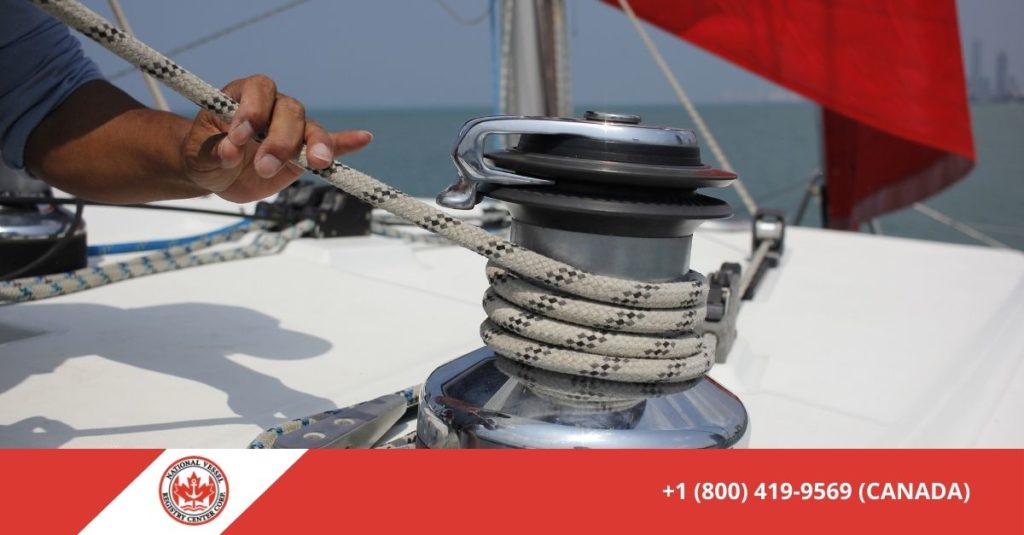Vessel tonnage refers to the measurement of a vessel’s size and volume, not its weight. When registering a boat in Canada, understanding a vessel’s tonnage is critical because it influences the type of registration required, regulatory obligations, and which documentation forms apply. Vessel tonnage plays a central role in determining compliance with Transport Canada’s registration standards.

At the National Vessel Registry Center, Corp., we help vessel owners ensure that their tonnage measurements are correctly calculated and submitted, streamlining the overall registration process through our secure online platform.
Why Vessel Tonnage Matters When Registering a Boat in Canada
When registering a boat in Canada, tonnage isn’t just a technical specification—it’s a requirement that impacts every step of the process. Tonnage is used to classify a vessel, determine its registration eligibility, and assess compliance requirements for both commercial and pleasure crafts.
Vessels with a gross tonnage of 15 or more are generally required to be registered in the Canadian Register of Vessels, especially when they are used for commercial purposes.
Tonnage also affects the following:
- Insurance classification and premiums
- Licensing of crew
- Safety equipment requirements
- Eligibility for certain trade routes
- Port fees and dues
Whether you are registering a fishing boat, passenger vessel, or private yacht, this figure must be accurate.
Types of Tonnage Used in Vessel Registration
There are two primary types of tonnage that affect how a vessel is classified: gross tonnage and net tonnage. These measurements are based on volume, not weight.
- Gross tonnage is a measure of the total internal volume of a vessel. It includes all enclosed spaces and is used to determine the overall size classification of the vessel.
- Net tonnage refers to the volume of cargo spaces available and is generally used for vessels carrying goods or passengers.
In most cases involving the Canadian Register of Vessels, gross tonnage is the key measurement. This figure is vital in determining whether your vessel meets the minimum threshold for mandatory registration.
How We Help Determine and Record Tonnage
We assist vessel owners by helping them complete and submit the necessary tonnage information as part of the registration process. The tonnage must be calculated using recognized methods and included in the application to Transport Canada. If the measurement is incorrect or incomplete, it could delay the registration or lead to fines later on.
Our secure platform includes forms that prompt users for the appropriate measurements needed to estimate tonnage. These forms are then reviewed before submission to reduce the risk of errors. We also work with third-party measurement providers when necessary to ensure vessels meet official documentation standards.
Tonnage and the Canadian Register of Vessels
Not every vessel needs to be included in the Canadian Register of Vessels. However, if your boat has a gross tonnage of 15 or more and is used for commercial activity—or if it will travel outside Canadian waters—it must be registered.
Registering a boat in Canada through this registry means submitting tonnage information during the initial application. The process also applies to:
- Commercial fishing vessels
- Bareboat chartered vessels
- Cargo or transport vessels
- Passenger vessels
- Vessels used in international trade
You can read more about the criteria and registration standards outlined in the Vessel Registration and Tonnage Regulations. Our team ensures that all submitted information aligns with these legal requirements.

When Tonnage Must Be Recalculated
There are times when a vessel’s tonnage must be reassessed. If you’ve made significant changes to your boat, such as structural modifications, expansions, or conversions from private to commercial use, the gross tonnage may increase or decrease. In these cases, Transport Canada requires that tonnage be recalculated and updated in your registration.
You may need to recalculate tonnage if:
- You’ve enclosed previously open spaces
- You’ve removed sections of the superstructure
- You’ve converted the use of onboard areas
- You’ve increased cargo capacity or living accommodations
We assist vessel owners in submitting updated forms and notify the appropriate authorities to ensure compliance. Failure to recalculate tonnage when needed can lead to misclassification and administrative complications.
Does Tonnage Affect Whether You Need to Register?
Yes. One of the most direct ways tonnage impacts registering a boat in Canada is by determining whether you must register at all. If your vessel meets the following conditions, registration is likely required:
- Gross tonnage is 15 or more
- Vessel is used for commercial or non-recreational purposes
- Vessel will be traveling internationally
- A marine mortgage must be registered
For boats under 15 gross tons used solely for recreation and within Canadian waters, a Pleasure Craft Licence may be sufficient instead. However, the registration route is often preferred due to the legal protections and documentation benefits it offers. We help you determine the correct path based on your vessel’s specs and intended use.
Helping You Avoid Errors When Submitting Tonnage
Tonnage calculations are technical and must be documented in a precise format. When vessel owners attempt to complete this step on their own, errors can occur—especially if they rely on incorrect dimensions or outdated methods. With our assistance, these issues are avoided.
We check each submission for accuracy and confirm that the correct measurement formulas were used. For vessels that don’t fall neatly into standard categories, we guide owners to certified naval architects or measurement specialists who can provide formal assessments. Once completed, the tonnage data is added to your vessel’s record and becomes part of its official registration profile.
Tonnage and Safety Requirements
Gross tonnage is also used by Transport Canada to determine which safety and operational regulations apply to your vessel. For example, vessels above a certain tonnage may be subject to more frequent inspections, specific crewing requirements, or advanced safety gear. These rules are in place to protect passengers, crew, and the marine environment.
When registering a boat in Canada, failing to report accurate tonnage may result in your vessel being out of compliance with safety regulations, which could affect your ability to operate or be insured.
Keeping Your Registration Current
Once your vessel is registered, you are responsible for maintaining the accuracy of all listed information—including tonnage. We make it easy to log into your account, request updates, and submit changes. Our system is mobile-friendly and secure, so you can manage your documentation wherever you are.
Whether you’re making alterations to the vessel or transitioning to a new use, our team ensures your records remain up-to-date. We also send reminders about renewal dates, allowing you to keep your registration active without any disruptions.
Getting Started Registering a Boat in Canada
If you’re beginning the process of registering a boat in Canada, your first step should include determining the correct gross tonnage. This is the foundation of your registration and will affect every part of the process. Our secure online platform is designed to guide you through each phase, from calculating and reporting tonnage to filing the final paperwork.
With our help, you won’t have to second-guess your forms or worry about missing information.
Registering your boat correctly starts with getting the tonnage right. Let the National Vessel Registry Center, Corp. help ensure your vessel is properly measured, documented, and ready to operate legally on Canadian waters.

